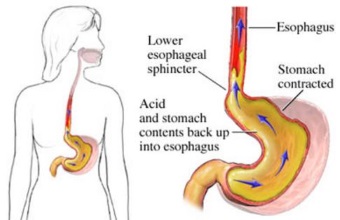Telehealth
Telehealth is available for my patients. I offer Telehealth consult through phone or video consults to all my existing patients without physically coming to see me. Patients must be seen face to face consultation within 12 months to be eligible for telehealth. If you require telehealth, please call the receptionist to arrange a time or book online with me on the website. If you have any enquiry, you can send email to me at
If you need prescription refill, I will send SMS using Escript to your smartphone. You then bring your smartphone to pharmacy. In the SMS, there is barcode and a pharmacist will scan the barcode and dispense your medication straight to you. For radiology and pathology referral, the referrals will be email to you.
Telehealth consult includes mental health plan and care plan if a patient is eligible for this.
Some consults will have to be done through video consults for mental health plan and etc. I will inform you which consult will need video consult. I will be using Jitsi as video conferencing platform. I will send you a link through email and all you have to do is to click on the link in email and allows video access in your smartphone.
There is some change in Medicare rule for bulk billing for telehealth. Consent for bulk billing for telehealth has to be obtained from a patient. After a telehealth consultation, I will email you a consent form for your record keeping in case of Medicare audit.
NB: If you still want to have telehealth with me but not eligible under Medicare, you will have to pay privately for the telehealth. The receptionist will ask you to pay first over the phone and then, the telehealth will be conducted.
Gastroesophageal reflux disease (GORD)
Gastroesophageal reflux disease is a condition where a person is experiencing reflux of acid from stomach into mouth. The person will describe the symptom as heartburn on his chest. This can occur from time to time. It is usually worse after eating certain food or laying down flat. Acid in stomach can be corrosive to the inner esophageal linnings. Repeat reflux can cause inflammation and ulceration to the esophagus causing pain when swallowing (dysphagia).
Foods known to worsen reflux are chocholate, tea, coffee, spicy foods and fried foods. Some medications can also worsen the heartburn.
Longstanding untreated reflux can lead to changes to the inner lining of the esophagus which called Barrett's esophagus. Barrett's esophagus means the lining of esophageal changes from squamous cells to intestinal metaplasia which allows the esophagus to withstand the corrosive effect of the acid. However, Barrett's esophagus can increase the risk of esophageal cancer (adenocarcinoma). To investigate for the changes, gastroscopy (fibre optic camera) to look into the esophagus and biopsy of esophagus to be taken and send to pathology. The pathologist will identify the cells in biopsy to see any changes to the cells.
Treatment of GORD will usually be medications such as Proton Pump inhibitor or Histamine 2 blockers. I prefer using Proton Pump inhibitor (Nexium) as it can reduce acid secretion in stomach by 90%. Whereas Histamine 2 blocker (Zantac), it can reduce acid secretion in stomach by 60% only. Nexium is a slow release and can last up to 19 hours.
In patients who have severe GORD despite on maximal medical terapy, surgery can be considered to solve the problem. Surgery like Nissen fundoplication which can be done through laparoscopic (keyhole) surgery.

Health check
When a person reach age of 50, a doctor will normally ask to have a proper health check if he or she never had one done before. The recommended health check should include:
- Blood pressure
- Blood tests for fasting cholesterol, sugar, full blood count, electrolytes, kidney function, liver function tests
- Iron studies, vitamin B12, thyroid function test, folic acid, PSA and Vitamin D level are subject to patient's condition. A doctor will need to ask question to justify these tests are necessary
- Skin check especially Caucasians to look for skin cancer such as basal cell carcinoma, squamous cell carcinoma, melanoma and etc
- *Faecal occult blood test to detect bowel cancer